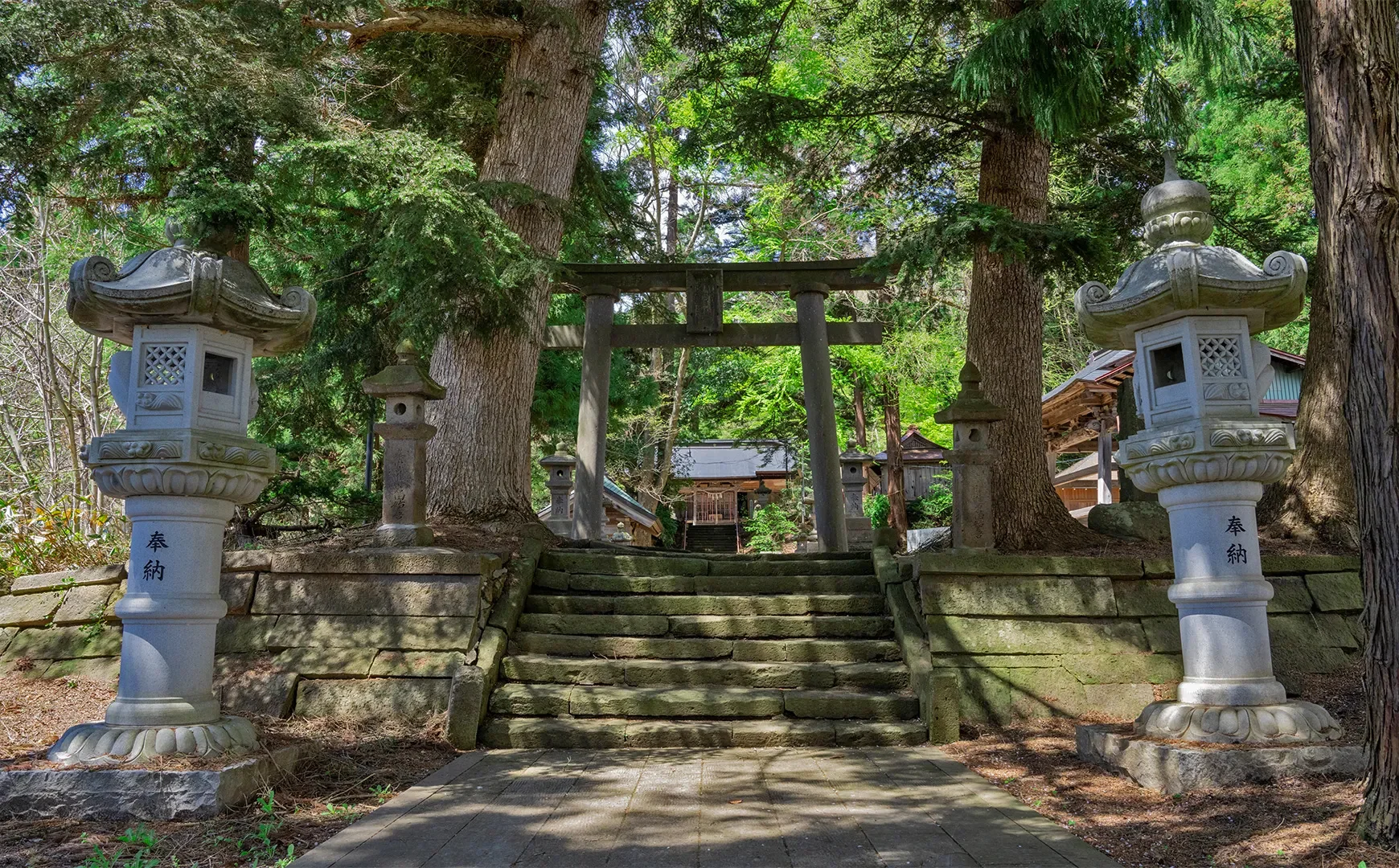
Worship/Pilgrimage
At the entrance to the shrine, there is a torii gate and a shimenawa pillar,
which mark
the boundary of the sacred grounds.
Before passing through the torii gate at the entrance,
bow and prepare yourself before
entering the temple grounds.
Temple grounds guide
Regarding the etiquette for worship
Before passing through the torii gate at the entrance, you should bow before entering the temple grounds.
Before praying, you should first purify yourself at the temizuya (purification fountain) in front of the torii
gate.
Once you have made your way to the front of the shrine (in front of the main hall), you will bow and then offer
a coin as proof of your prayer to the gods. The sight of the offering being thrown into the offering box with skillful
use of the hands is an auspicious gesture that mimics the sowing of seeds and brings the blessing of seeds sprouting.
A bell is gently rung to perform the “bell purification” ritual, and then the person prepares for prayer.
The proper etiquette for praying is two bows, two claps, and one bow. The ritual involves two bows to show respect
to the gods, then a final bow is given to connect the heart with the invisible gods through applause.
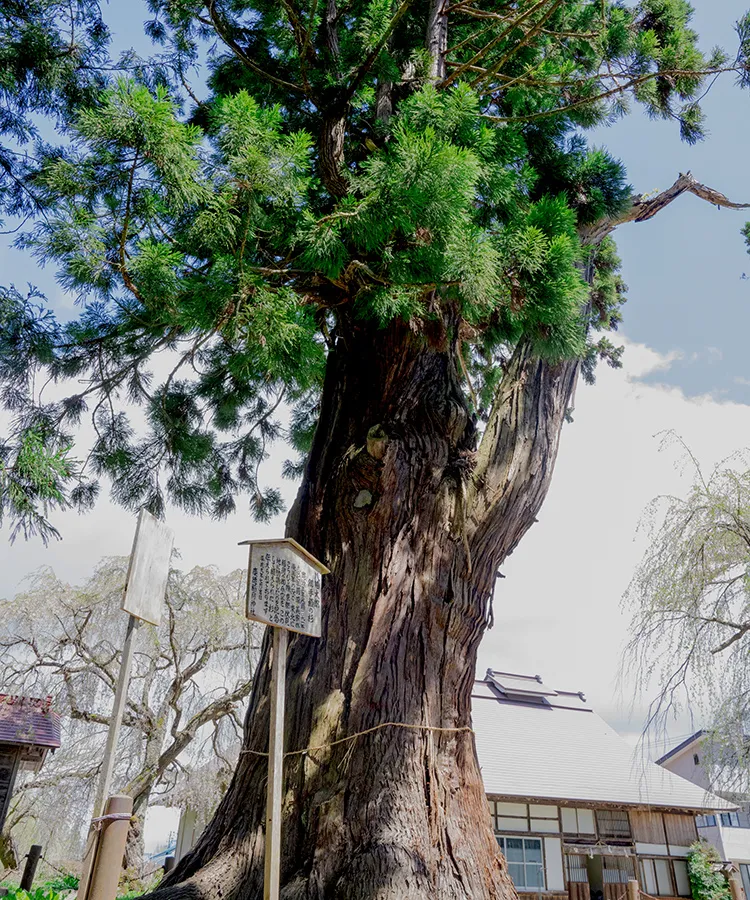
Sacred tree Designated as a Fukushima Prefecture Natural Monument (October 1, 1981)
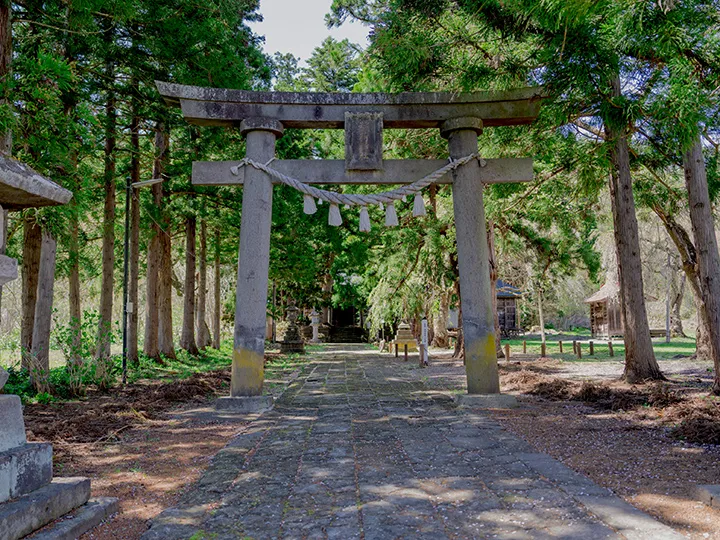
Large Torii Gate
Torii gates indicate shrines and can also be said to be structures that symbolize the sanctity of shrines. Torii gates are erected at the boundary between the inside and outside of a shrine, and the area inside the torii gates is revered as a sacred area where the gods reside.
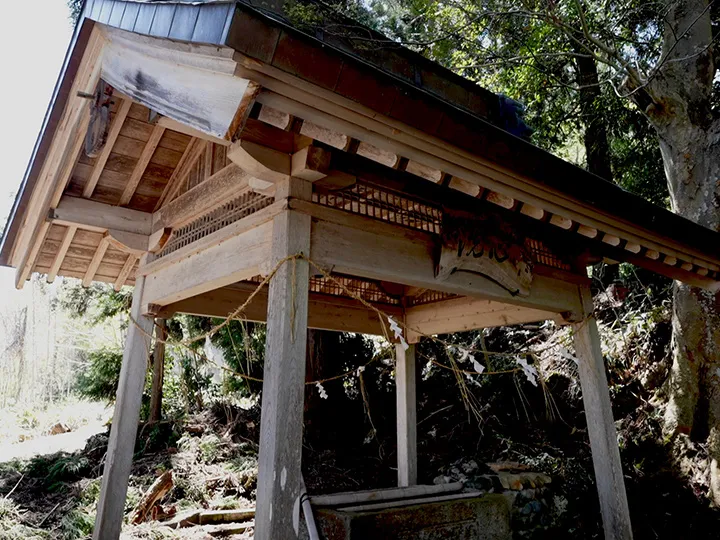
Chozuya (purification fountain)
This is a place where you can purify yourself by rinsing your hands and mouth with water before praying.
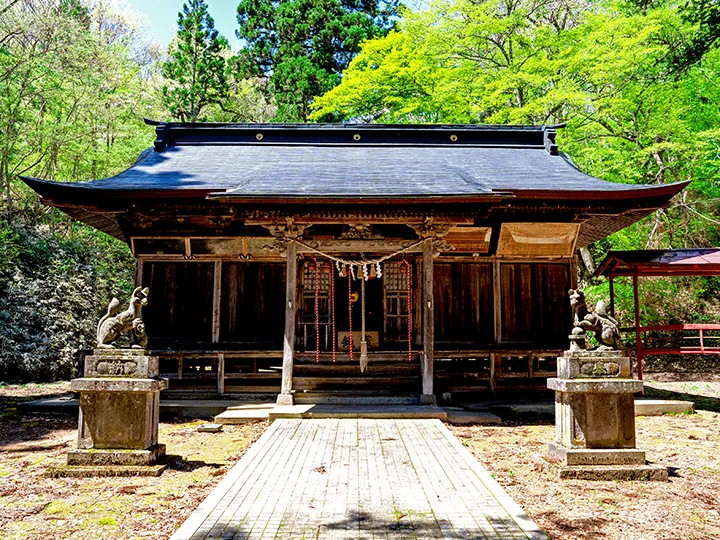
Main Hall
In the spring of the third year of the Oei era (1396), the priest Gen’o was inspired to restore the dilapidated shrine after hearing a message from a spirit of a young woman in a dream. Through fundraising efforts, he remodeled the main building and improved the grounds, restoring the shrine to its former appearance.
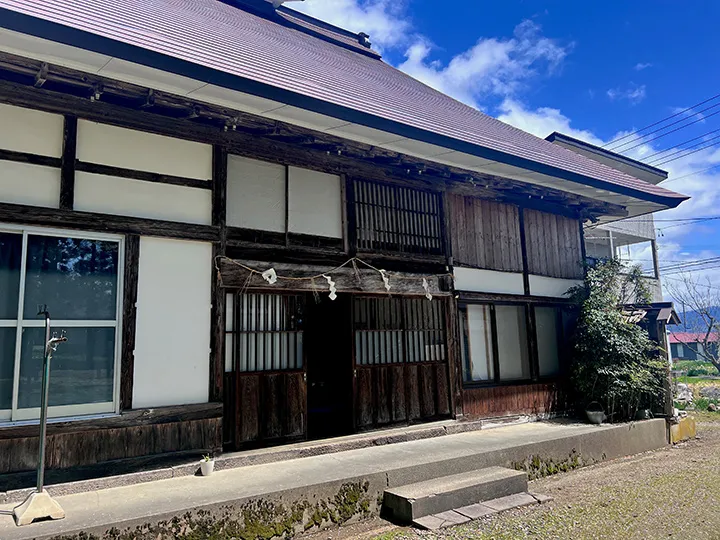
Shrine office
There is a reception desk for prayers and temple seals, a waiting room for prayers, a place to hand out sacred talismans, and a place to grant sacred talismans.
